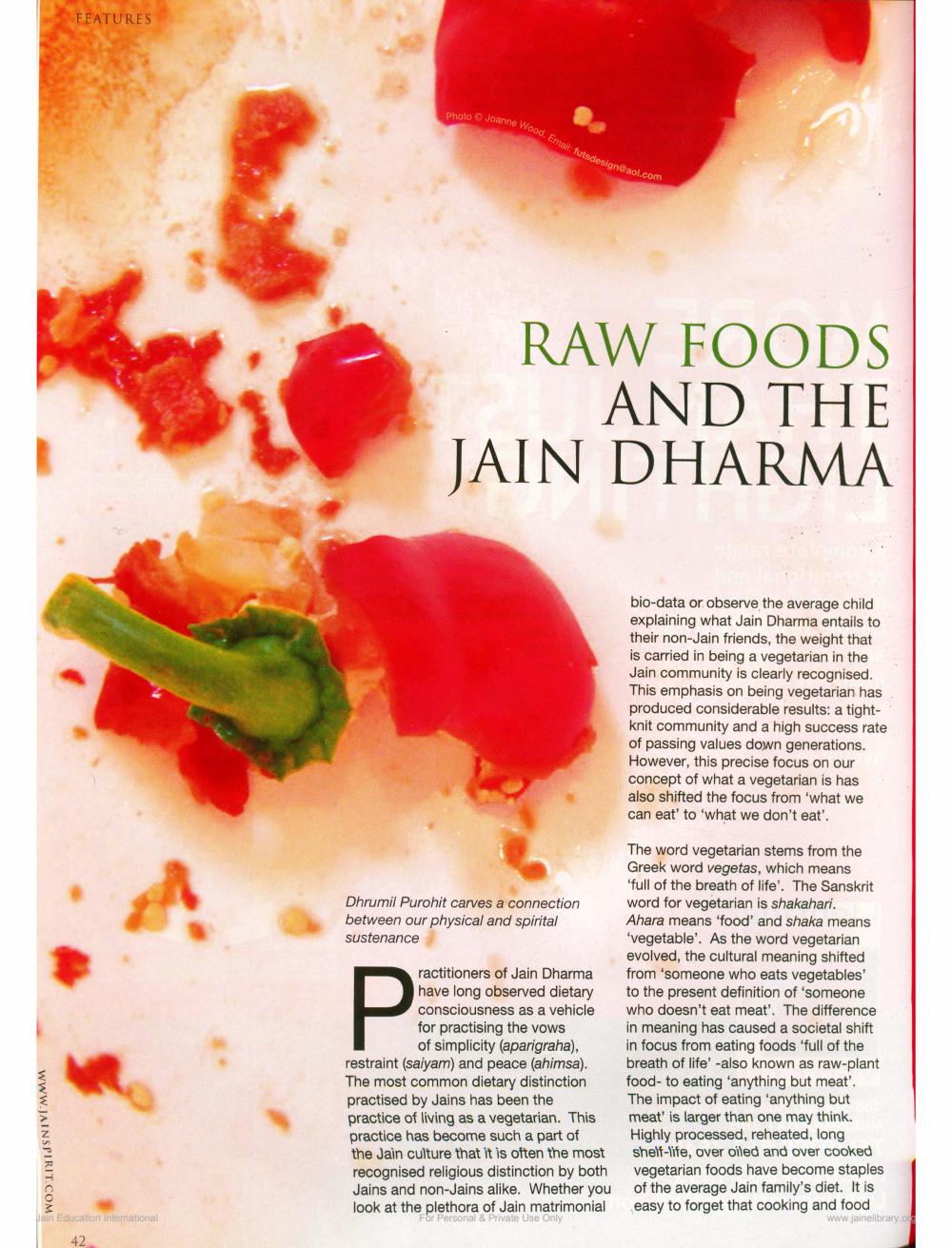________________
FEATURES
Photo
Joanne Wa
email:
[email protected]
RAW FOODS
AND THE JAIN DHARMA
bio-data or observe the average child explaining what Jain Dharma entails to their non-Jain friends, the weight that is carried in being a vegetarian in the Jain community is clearly recognised. This emphasis on being vegetarian has produced considerable results: a tightknit community and a high success rate of passing values down generations. However, this precise focus on our concept of what a vegetarian is has also shifted the focus from 'what we can eat' to 'what we don't eat'.
Dhrumil Purohit carves a connection between our physical and spirital sustenance
The word vegetarian stems from the Greek word vegetas, which means 'full of the breath of life'. The Sanskrit word for vegetarian is shakahari. Ahara means 'food' and shaka means 'vegetable'. As the word vegetarian evolved, the cultural meaning shifted from 'someone who eats vegetables to the present definition of 'someone who doesn't eat meat'. The difference in meaning has caused a societal shift in focus from eating foods 'full of the breath of life' -also known as raw-plant food- to eating anything but meat'. The impact of eating anything but meat' is larger than one may think. Highly processed, reheated, long shelf-life, over oiled and over cooked vegetarian foods have become staples of the average Jain family's diet. It is easy to forget that cooking and food
www.jainelibrary.
ractitioners of Jain Dharma have long observed dietary consciousness as a vehicle for practising the vows
of simplicity (aparigraha), restraint (saiyam) and peace (ahimsa). The most common dietary distinction practised by Jains has been the practice of living as a vegetarian. This practice has become such a part of the Jain culture that it is often the most recognised religious distinction by both Jains and non-Jains alike. Whether you look at the plethora of Jain matrimonial
For Personal & Private Use Only
WWW.JAINSPIRIT.COM
Jain Education international
42




